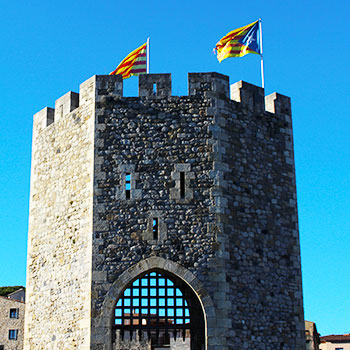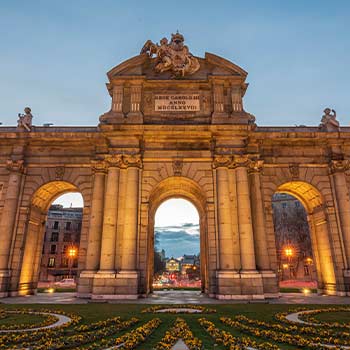Globalization, Development and Social Cohesion: which role for International Development Cooperation?
International Business Program
Barcelona, Spain
Dates: 1/3/20 - 4/25/20

Globalization, Development and Social Cohesion: which role for International Development Cooperation?
OVERVIEW
CEA CAPA Partner Institution: Pompeu Fabra University
Location: Barcelona, Spain
Primary Subject Area: Political Science
Instruction in: English
Transcript Source: Partner Institution
Course Details: Level 300
Recommended Semester Credits: 3
Contact Hours: 45
DESCRIPTION
Is Globalization a force for good, enabling poor nations to lift themselves up from poverty or does it create vast opportunities only for a small minority? In 2007 leading economist Dani Rodrik did wonder how Globalization reshapes wealth and opportunity around the world. Ten years later, according to World Bank statistics, poverty is still persistent and it affects more than 1,000 million of human beings. Why?
In the rhetoric of the rich world, cooperation for development has historically been a fundamental objective for various international actors such as the United Nations (UN), the Organisation for Economic Co-operation and Development (OECD), the World Bank (WB) and the European Union (EU). In spite of these enormous efforts - 2, 3 trillions of dollars in the last five decades - international cooperation seems to have not been very effective. The path of sustainable human development is still full of obstacles and constraints represented, in 2 many cases, by failed states, corrupt and clientelistic bureaucracies, selfish and profit oriented economic agents and aid agencies, and naïve and underfinanced nongovernmental organizations.
The objective of this course is to introduce the student to the most salient aspects of the debate around development and international cooperation. A special emphasis will be devoted to the role of main international agencies and national states. The main thrust of the course will be on outlining the institutional and political mechanisms of international development, as well as examine their impact in developing territories and beneficiaries by using real example and programmes. Moreover, as international cooperation, from a multilevel and holistic perspective implies not only the participation of public organizations, the course will observe the most innovative and more participative practices in international cooperation. The EU - as the main donor of official development assistance - conducts several development programmes and projects that not only seek to provide funds but also to involve local and no-public stakeholders. Relying upon these different sources, the course will provide an important set of examples and real cases about what work (and does not work) in development cooperation.
In the rhetoric of the rich world, cooperation for development has historically been a fundamental objective for various international actors such as the United Nations (UN), the Organisation for Economic Co-operation and Development (OECD), the World Bank (WB) and the European Union (EU). In spite of these enormous efforts - 2, 3 trillions of dollars in the last five decades - international cooperation seems to have not been very effective. The path of sustainable human development is still full of obstacles and constraints represented, in 2 many cases, by failed states, corrupt and clientelistic bureaucracies, selfish and profit oriented economic agents and aid agencies, and naïve and underfinanced nongovernmental organizations.
The objective of this course is to introduce the student to the most salient aspects of the debate around development and international cooperation. A special emphasis will be devoted to the role of main international agencies and national states. The main thrust of the course will be on outlining the institutional and political mechanisms of international development, as well as examine their impact in developing territories and beneficiaries by using real example and programmes. Moreover, as international cooperation, from a multilevel and holistic perspective implies not only the participation of public organizations, the course will observe the most innovative and more participative practices in international cooperation. The EU - as the main donor of official development assistance - conducts several development programmes and projects that not only seek to provide funds but also to involve local and no-public stakeholders. Relying upon these different sources, the course will provide an important set of examples and real cases about what work (and does not work) in development cooperation.






